Earth Day - April 22
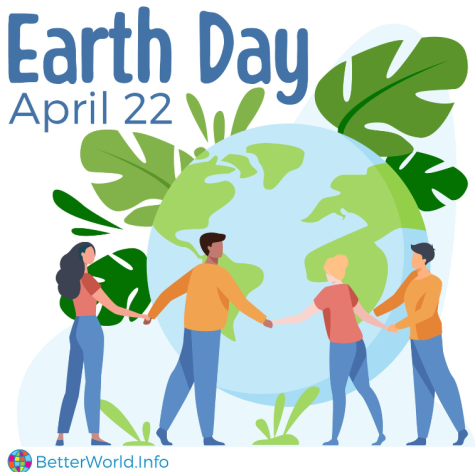
➡️ Earth Day, April 22 - #OurPowerOurPlanet
Earth Day is now the largest international civic event on the planet as millions stand up for the safeguarding of our planet and a better future. Now in its 55th year, the event began in 1970 as millions of Americans united to stand against rampant pollution and indifference towards environmental protection.
Jump straight to our resources on ➡️ Earth Day
Explore our comprehensive guides on -
-
Environment and Nature
-
The Climate Crisis
-
The 2015 Paris Climate Agreement
-
The United Nations Climate Conferences (COP)
-
The Sustainable Development Goals (SDGs)
Please share this unique resource via ➡️ Twitter, Bluesky, Facebook, Instagram and LinkedIn!
German speakers can visit our partner site, Bessere Welt Info, for further insight.
Earth Day raises huge public awareness and has led to the establishment of major landmark environmental laws in the U.S., such as the Clean Air, Clean Water, and Endangered Species Acts. The first nationwide demonstration sparked political action, which led to the creation of the EPA. Earth Day also played a pivotal role in creating global commitments such as the 2015 Paris Agreement on climate change.
The 2025 theme 'Our Power Our Planet' focuses on a renewed commitment to renewable energy generation. The nonprofit organisation is calling for global renewable energy generation to be tripled by 2030. For the first time in history, we have the tools and knowledge to provide virtually unlimited, low-cost energy to everyone.
Renewable energy costs are plummeting, large-scale clean energy production would reduce health risks enormously, and a shift from fossil fuels would dramatically reduce the levels of greenhouse gases in the environment, reducing the severity of climate change. The green energy transition also represents a huge economic opportunity, creating millions of new jobs, cutting energy bills, and driving innovation in manufacturing, transportation, and agriculture.
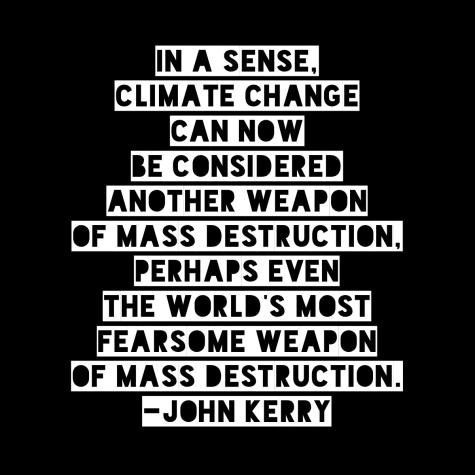
What are the Planet's Most Pressing Environmental Issues?
∗ CLIMATE CRISIS
The year 2024 has been confirmed as the warmest year on record. CO2 levels in the atmosphere are now well above 420 ppm, creating a series of devastating consequences for nations across the globe. Extreme weather events have become more frequent and severe due to climate change.
The consequences of climate change include wildfires, rising sea levels, hurricanes, flooding, heatwaves, melting of the Arctic and Antarctic ice, drought, hunger, increasing conflict over rising competition for land, the widespread displacement of climate refugees, and the huge financial cost of inaction.
∗ BIODIVERSITY LOSS
A 2020 study by the WWF revealed an average decline of 68% in the population sizes of mammals, fish, birds, reptiles, and amphibians between 1970 and 2016. This can be attributed to large-scale land use changes for agricultural systems, the illegal wildlife trade, and deforestation.
More than 500 species of land animals are on the brink of extinction and are likely to be lost within 20 years.
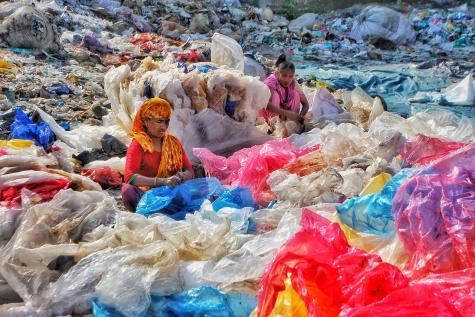
∗ PLASTIC POLLUTION
Annually, the world produces around 350 million tonnes of plastic waste. Fourteen million tonnes of it enters our oceans every year. Devastatingly, 91% of all plastic that has ever been made is not recycled. This is one of our biggest environmental problems and represents a huge market failure.
Plastics take up to 400 years to decompose, meaning that future generations will be left dealing with the irreversible effects of today's irresponsibility for their whole lives.
∗ AIR POLLUTION
Air pollution kills an estimated seven million people worldwide every year. Nine out of ten people globally are breathing in high levels of pollutants with Bangladesh, Pakistan, and India taking the top spots for the most polluted countries. In these places, air pollution cuts life expectancy by 5 years.
Industrial emissions, transport, and waste burning are the biggest contributors, which are then exasperated by poor governmental regulation, ageing infrastructure, and insufficient healthcare.
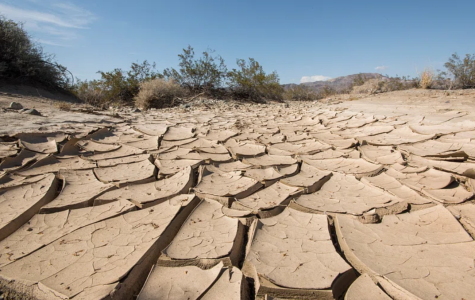
∗ FOOD AND WATER INSECURITY
With decades of unsustainable farming practices and the impacts of climate change, our planet is experiencing the devastating consequences of our inability to feed our planet's expanding population.
Topsoil laden with fertilisers and pesticides is being eroded 100 times faster than it can naturally be replenished. As well as seriously limiting the soil's ability to produce food, it is also a key factor in the contamination of drinking water.
In 2022, nearly 258 million people across 58 countries experienced crisis-level food shortages, and 1.1 billion people worldwide lacked access to clean drinking water.

How Can I Get Involved in Earth Day?
-
Join activities prepared by environmental organisations near you.
-
Plant trees, join or organise a local litter collection or clean up.
-
Show your support at a local protest.
-
Get active on social media, spread awareness and use your voice.
-
Write to representatives in your country responsible for environmental and climate policy.
-
Share Better World Info’s platforms for Earth Day and the Climate Crisis with your peers.
-
Use the Earth Day tool kits for further inspiration.
While individual actions may seem small, global participation in Earth Day creates a powerful force for change, influencing policy, corporate practices and raising public awareness of environmental issues that require the urgent attention and action of global leaders.
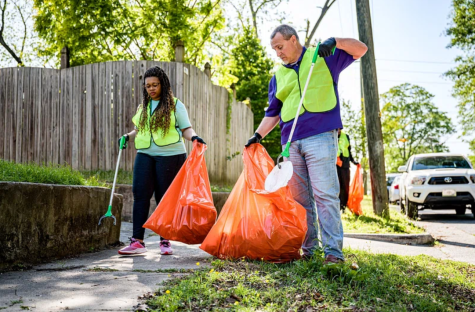
Earth Day for a Better World
As an essential platform for dialogue among nations, Earth Day helps to foster a collaborative approach to address global environmental challenges and push for stronger environmental governance and commitments.
It serves as a call to action to reduce greenhouse gas emissions, end fossil fuel subsidies, transition to renewable energy sources, and protect the planet's precious natural resources. We must unite individuals and organisations in a collaborative effort to combat environmental degradation.
This Earth Day, let us commit to a renewable energy transition for a healthy, sustainable, equitable and prosperous future for everyone.
Author: Rachael Mellor, 22.04.24 (Updated 22.04.25) licensed under CC BY-SA 4.0
For further reading on Earth Day see below ⬇️
- The Wild Escape on Earth Day – in pictures - The Guardian 21.04.23341901
- 7 ways we’ve made the Earth better since the last Earth Day - VOX 21.04.23341836
- ‘Off the charts’: UN report highlights rapid climate breakdown - Al Jazeera 21.04.23341837
- For Earth Day, Let's End our Addiction to Oil - CD 20.04.23342473
- The EcoWatch Guide to Earth Day 2023 - EcoWatch 12.04.23341045
- Climate Activist Dies After Setting Himself on Fire on Earth Day - Eco Watch 25.04.22284569
- Dishonoring Earth Day 2022 With an Oil, Gas, Coal, and Nuclear Heyday - CD 23.04.22284986
- Tweet: “That's home. That's us. On it everyone you love, everyone you know, every human being who ever was...the pale blue dot, the only home we've ever known" Carl Sagan - …285447
- Earth Day: Military Degradation of the Environment - Accuracy.org 22.04.22292735
- His Holiness the Dalai Lama's Message for Earth Day 2022 - Dalailama 22.04.22285233
- Remembering the Radical Roots of Earth Day - CD 22.04.22284611
- Earth Day: Enemies and Opportunities - CD 19.04.22283353
- Biden to tout climate policies for Earth Day - The Hill 18.04.22282940
- Looking ahead to Earth Day - New Yorker 17.04.22282939
- Celebrating Earth Day? See How PETA Has Taken Action Against the Climate Catastrophe - Peta 15.04.22282947
- Earth Day: What is it and why does it matter? - Space 13.04.22282936
- 100+ NYC Streets Will Go Car-Free for Earth Day -EcoWatch 06.04.22281651
- Join the 2022 Earth Day Photo Challenge - U.S. Department of Commerce 04.04.22281311
- Car-Free Earth Day is coming back in 2022 - Gothamist 03.04.22281308
- Earth Day 2022: Theme, Facts, Latest Events, and Celebrations - Earth Reminder 03.04.22281307
- Everything You Need To Know About Earth Day 2022 - Vogue 01.04.22281310
- Great Barrier Reef Foundation - Earth Day Australia 2022282949
- Looking for the Best Earth Day Activities? Here Are 15 Fun Ways to Celebrate Earth Day - Parade 01.03.22281313
- 10 environmental documentaries to stream this summer - Earth Day 11.08.21282950
- Earth Day to May Day Point to a New America - CD 30.04.21242711
- 7 Earth Day Celebrations From Around the World - Green Matters 22.04.21282932
- Earth Day 2021: Canada’s latest budget falls dangerously short on climate action - Conversation 22.04.21241777
- The Red Deal: Interview with Red Nation Members About an Indigenous Plan to Save Our Earth - Democracy Now! 22.04.21243828
- Earth Day 2021: A turning point for climate action - WE Forum 22.04.21241782
- Earth Day 2021: Climate activists dump manure on Biden White House as Greta hits out with Twitter bio - Independent 22.04.21241778
- Dalai Lama: Message for Earth Day - Sonnenseite 22.04.21243265
- Earth Day: UK statement at the OSCE Permanent Council - Gov.uk 22.04.21282944
- Earth Day 2021: Restore Our Earth - DW 21.04.21241781
- Apple celebrates Earth Day 2021 - Apple 21.04.21241773
- On TV, spend Earth Day with David, Greta … or Cher? - NY Times 21.04.21241780
- Earth Day 2021 is set to galvanize climate action - UNFCCC 20.04.21241776
- 10 Green Pledges to Take for Earth Day - One Green Planet, 2021282943
- Earth Day Network - Earth Day 2021221631
- Earth Day Eve 2021 - A virtual celebration - Nat Geo241775
- Video: Bill McKibben on Earth Day at 50: We Must Stop Subsidizing Fossil Fuel Industry Wrecking the Planet - Democracy Now! 23.04.20205367
- Five environmental films to watch on Earth Day - Al Jazeera 22.04.20205498
- How the environment has changed since the first Earth Day 50 years ago - Scientific American 22.04.20205458
- Leaders from Unilever, WWF, others reflect on what's changed since the first Earth Day - GreenBiz 22.04.20205399
- Earth Day 1970 was more than a protest. It built a movement - Washington Post 22.04.20282946
- Earth Day 2020 sign on statement from members of the Abolition 2000 global network to eliminate nuclear weapons - BlogRoll 21.04.20205371
- How the largest environmental movement in history was born - BBC 21.04.20282945
- Q&A with Denis Hayes, planner of the first Earth Day and the 'virtual' 50th - Inside Climate News 17.04.20205300
- Yes, Earth Day is still happening - Tree Hugger 13.04.20204761
- 8 New Earth Day Ideas for Companies (You’ve Never Heard of Before) - Recycle Coach 23.03.20281312
- Earth Day 2020205370
- 5 Free Documentaries to watch for Earth Day 2020 - Down to Earth282952
- Earth Day 2018 Google Doodle - YouTube114974
- Earth Day 2018 - End Plastic Pollution - Global Citizen114975
- Caring is just not enough 4/15115006
- Earth Day 2015 - PlanetPals115001
- Earth Day ShoutOut: Let’s Act on Climate Change 4/14115007
- Oprah Earth Day: Do You Know Where Your Garbage Goes? Part 1of 6115008
- From Selfies to Thunderclaps: 7 Ways to Pump Up Your Earth Day Celebrations 4/14115012
- People’s Movements Give “Earth Day” a New Name and Transformative Potential - Common Dreams 4/13115013
- A tale of two Earth Day heroes: Tim DeChristopher and Sandra Steingraber - Bill McKibben 4/13115014
- As it happened: How Earth Day 2013 was celebrated around the world - Mirror 4/13115015
- Save Earth Day - Nation 5/12115019
- Earth Day celebrated in Google doodle - Guardian 4/12115020
- This Isn't About Tree-Hugging Anymore, It's About the Way We Live - HuffPost 4/12115021
- Book: Earth Day: Vision for Peace, Justice, and Earth Care: My Life and Thought at Age 96 - John McConnell, 2011282956
- Movie: Earth Days (2009)282953
- Our Tweet from 2024466035